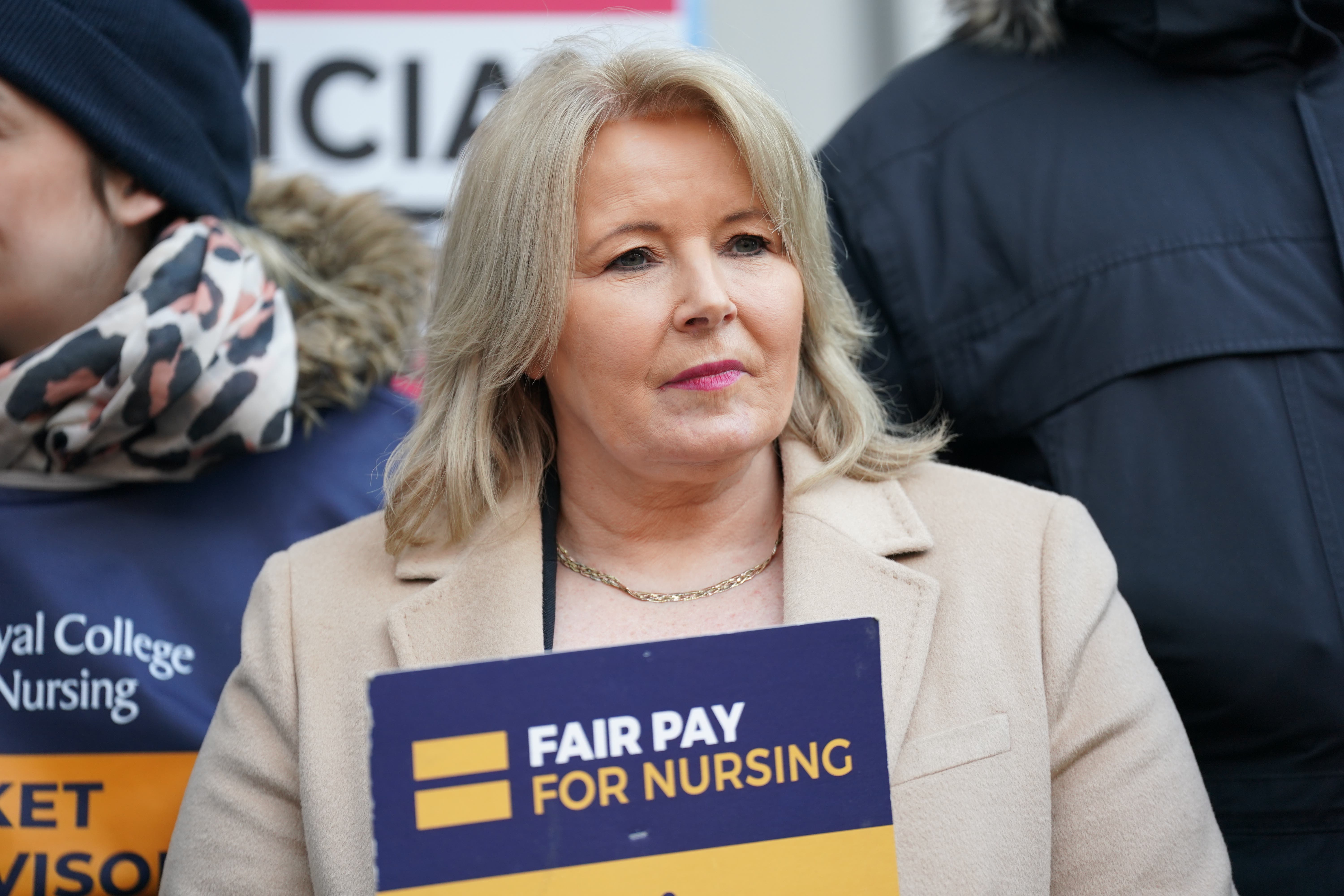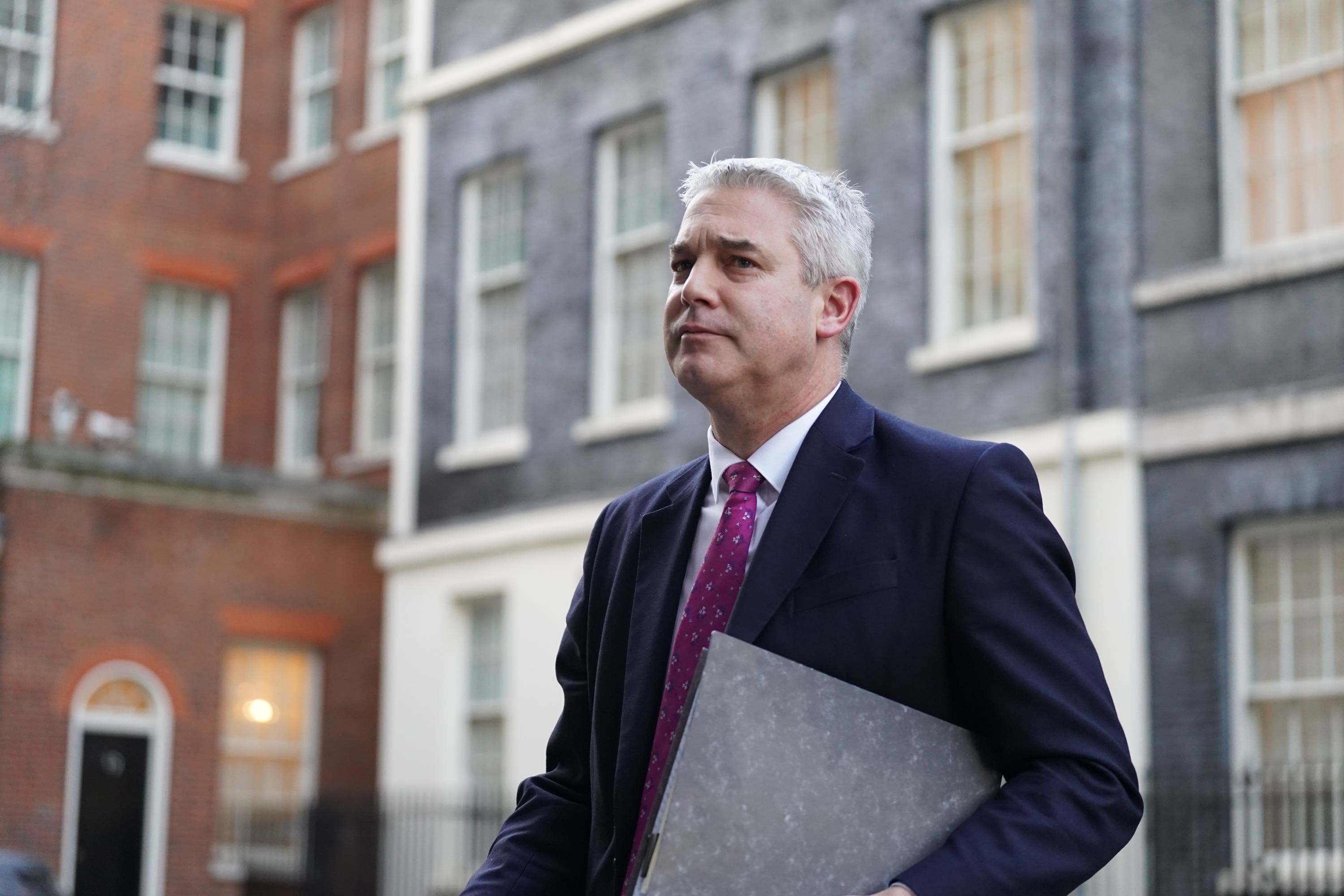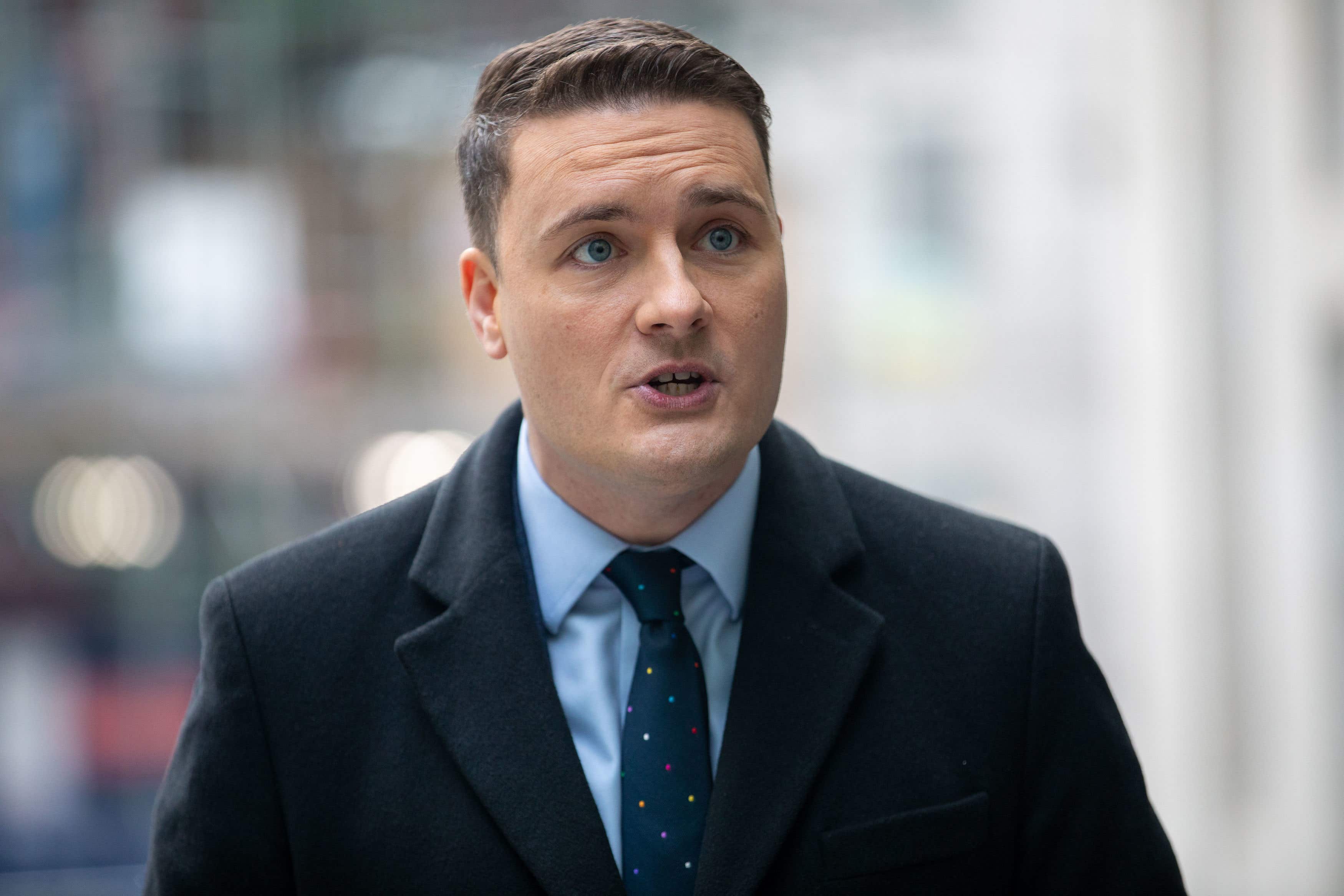Nurses’ walk outs could last until Christmas as union plans ‘mega strike’
National ballot of Royal College of Nursing members could double number of NHS trusts hit by action

Royal College of Nursing (RCN) union leader Pat Cullen has said nurses could strike until Christmas if Rishi Sunak’s government does not back down on pay demands.
It comes as the country’s largest nursing plans to raise the stakes with a “mega strike” that would mean nurses walking out of every NHS hospital trust in England for the first time.
Nurses will strike for 48 hours at the end of April after RCN members rejected the government’s 5 per cent pay rise offer. Staff in emergency departments and cancer wards will take action for the first time.
The RCN will also hold a new ballot next month as a single, national vote for strike action for the rest of 2023, rather than taking action trust by trust.
Asked by the BBC if the union will stop strike action, Ms Cullen said: “No, our nurses will absolutely not do that. We have strike action for the end of this month and the beginning of May. Then we will move immediately to ballot our members.”
The union leader told the Sunday with Laura Kuenssberg programme: “If that ballot is successful it will mean further strike action right up until Christmas.”
Conservative party chair Greg Hands told Sky News on Sunday that a “full and final” pay offer had already been made to nurses, saying the upcoming RCN “will clearly have an impact” on patients.
Strikes involving RCN members held since November have only involved around half of England’s NHS trusts in England. Union members rejected action and worked as normal in the other half of trusts.
But the union is considering running the new ballot as a single, national vote, the RCN officials confirmed to The Independent – an escalatory move that would widen the impact of industrial action.
Ms Cullen told The Observer that 280,000 members in England will get a fresh vote this summer. “If the majority support it, we will be striking in double the number of places than we have to date,” she warned.
Junior doctors’ leaders in the British Medical Association (BMA) have warned they could coordinate strike action with nurses. Dr Vivek Trivedi, co-chair of the BMA’s junior doctors committee said was “definitely something we would consider”.

But Ms Cullen dismissed the idea on Sunday, telling the BBC: “There are no plans in place from the Royal College of Nursing to coordinate strikes with doctors.”
Saffron Cordery, chief executive of the NHS Providers – the umbrella body for NHS hospital and ambulance services – said the prospect of strikes until Christmas was “ugly”.
She told the BBC: “It’s not sustainable going forward for the NHS to manage strike action. It feels like a really ugly situation to say we’re going to have strikes now until Christmas. We desperately need the government to come to the table alongside the unions coming to the table.”
Asked if patients would die if junior doctors and nurses went on strike at the same time, Ms Cordery said: “I think it’s really difficult to say whether that is the case or not – but we know that there are significantly higher levels of risks not just in hospitals, in mental health care. Everyone is affected by these strikes.”

Labour’s shadow health secretary Wes Streeting said he was “deeply worried” about nurses withdrawing emergency care during the 48-hour strike set for 30 April – saying it was the “wrong thing to do”.
Mr Streeting told Sky News’ Sophy Ridge on Sunday: “I’d appeal to them, if they are going on strike, to continue to protect patient care.”
Speaking on BBC’s Sunday with Laura Kuenssberg, Mr Streeting said he didn’t support further strike action. “How could I? I mean there’s a risk to patient safety. It wouldn’t be the right thing to do,” said the senior Labour figure.
“The government have got to bend over backwards to resolved disputes,” he also said, but added that a 35 per cent pay demand for junior doctors “is not something that I would be able to deliver if I were the health secretary”.

Health secretary Steve Barclay has called on the RCN to accept the government’s 5 per cent pay increase offer so the NHS can “get back to focusing on patients”.
In an opinion piece for The Sun, Mr Barclay said: “Patient safety is my first priority ... Industrial action means the safety of patients is put at risk. Cancelled operations, missed appointments, and treatments postponed – none of this is good for the NHS or patients.”
The Tory chair said “full and final” pay offer had been made to nurses, but added the government is waiting to see if the other health unions accept it before responding formally to the possibility of wider strikes.
Mr Hands told Sky News: “Steve Barclay is always willing to talk, so long as there aren’t preconditions attached, and so long as there isn’t the threat of strikes going on at the moment.”
It comes as hundreds of staff at the Care Quality Commission (CQC) are to work to rule from next week in a dispute over pay. Unison said those taking industrial action from Monday include inspectors of health and social care organisations, workers in call centres and data analysts.
The action will involve employees doing no more than the minimum required under their job contracts, such as working only the hours they are paid for, not doing overtime and taking all the breaks to which they are entitled.




Join our commenting forum
Join thought-provoking conversations, follow other Independent readers and see their replies
Comments